Describe a time you taught something new to a young person – IELTS Speaking Cue Card Sample Answers
Want to explore the IELTS Speaking Cue Card topics? Utilize the band 8+ strategies to approach the topic, ‘Describe a time you taught something new to a young person’ and dive into the sample answers and vocabulary words to excel in the IELTS Exam.
Table of Contents
- Band 8+ tricks to answer the IELTS Speaking Cue Card topic, ‘Describe a time you taught something new to a young person’
- Sample Answer 1 for IELTS Speaking Topic ‘Describe a time you taught something new to a young person’
- Sample Answer 2 for IELTS Speaking Topic ‘Describe a time you taught something new to a young person’
- Vocabulary for IELTS Speaking Topic ‘Describe a time you taught something new to a young person’

Limited-Time Offer : Access a FREE 10-Day IELTS Study Plan!
The topic, ‘Describe a time you taught something new to a young person’, gives you an opportunity to speak for two minutes at length. These answers will give you an opportunity to share one of your experiences of a time you taught something new to a young person . By indulging with the strategies, these would guide you to learn how to communicate clearly and successfully.
Remember to focus on understanding how to approach the topic for the IELTS Speaking Part 2. By practising on a regular basis, you will be able to hone your speaking skills. With these tips, you can achieve a higher band score of 8+.
Connect with our IELTS Experts to crack your IELTS Speaking and ace the exam with a band 8+! Book a Free Demo.
Band 8+ tricks to answer the IELTS Speaking Cue Card topic, ‘Describe a time you taught something new to a young person’
As you start with your preparation for the IELTS Exam, you will learn the effective way to answer the topic ‘Describe a time you taught something new to a young person’. However, just preparing regularly might not help but you can incorporate a few tips to note your weakness. Let’s check out band 8+ tricks to speak confidently and coherently.
- Recording yourself as you speak on such topics is a good way to improve your skills. Always remember to listen back to the recording to track your progress level.
- Utilize the one-minute preparation time to organize your thoughts coherently. This will help you to speak without hesitation.
- Make sure that you familiarize yourself with the Latest IELTS Speaking Vocabulary to Boost Your Score.
- Always attempt answering the questions so that you can compare yours with the sample answer provided. With this technique, you will be able to understand how the ideas are developed and supported.
- Try to vary your voice to avoid sounding very robotic. Use appropriate voice modulation and intonation so that you would sound natural.
- Strengthen your ability to use complex sentence structures to score more for the parameter of grammatical range and accuracy. Therefore, practice using the main topics from IELTS Grammar.
Want to learn how to score band 9 in the IELTS Speaking Section? Check out the video below!
IELTS Speaking Part 2 - Describe a time you taught something new to a young person
Describe a time you taught a young person how to do a thing.
You should say:
- what you taught;
- whom you taught it to;
- why you taught it to this person;
- and explain how you felt about it.
Sample Answer 1 for IELTS Speaking Topic ‘Describe a time you taught something new to a young person’
Teaching a person younger than oneself can be a learning experience in itself. While the teacher has the privilege of sharing their knowledge, they also learn some things from their student. One summer, while my cousin and I were spending the vacation at our grandmother’s house, she sought my help with her Mathematics and English holiday homework. The topics for both subjects were pretty simple. Therefore I was confident that I would not have any trouble teaching her.
We started with the mathematics homework, and from the very beginning, she floundered in understanding the concepts and solving the questions by herself. Although it was no secret that she struggled with Maths, I was unable to assess her condition. After several attempts, I started losing patience and was almost frustrated. I even assumed that she might have the same problems with the English homework, especially grammar. However, she was quick to prove me wrong. As we moved from one chapter to another, I could see her command of the language and overall proficiency. Not only did she finish the homework efficiently, but her answers were also flawless.
The most remarkable piece of the English homework was her essay on “A day on the moon”. Out of three issues, she chose the one that needed her to narrate an extraordinary scenario in simple words. I was a teacher in this incident, and my cousin was the student, yet I believe I learned a crucial lesson. Elders often judge children based on a single event, especially their academic performance. Nevertheless, we fail to understand that although every subject is essential, every child is unique and special. Being weak in one subject does not mean the child fails to perform well in all other subjects. Nurturing individual interests can take a child a long way in their life.
Grab the Comprehensive IELTS Speaking Band 8 Preparation Course to access the sample band 9 answer scripts and band 9 vocabulary related to specific topics!
Sample Answer 2 for IELTS Speaking Topic ‘Describe a time you taught something new to a young person’
As an English teacher and an interpreter, I sometimes take on the role of a tour guide. So when I have friends coming for a visit, I’ll take them to some of the most famous places in my city.
Just last month, a friend of mine who comes from a different part of my country brought his kids here. They were all excited to see my city and were particularly interested in historical places, which they’d all read about in textbooks but hadn’t had the chance to visit in person.
On the first day I took them to ABC, which is the first university of my country. The place is situated in the centre of our capital, its architecture typical of the feudal times, looking very distinct from the modern buildings in its surroundings.
At the entrance we noticed people in traditional clothing offering calligraphy service. My friend decided to ask for some ‘lucky phrases’ to bring home. Passing the gate, we started walking down the main path and arrived at a temple where people can wish for luck before exams. There were also stone turtle steles lining the walls. It is said that if you touch their heads luck will come to you during your exams. But in recent years these heads have been touched so much that they are now off-limits. I specifically warned them not to do that.
Explore the List of IELTS Cue Cards for Topic - Time and hone your speaking skills to achieve a band 8+!
Vocabulary for IELTS Speaking Topic ‘Describe a time you taught something new to a young person’
Check out some IELTS Vocabulary to use while answering the cue card topic, ‘Describe a time you taught something new to a young person’. Since using advanced vocabulary words would add to your advantage, make sure to make sentences with these to become familiar with such words.
- Interpreter: a person who interprets, especially one who translates speech orally or into sign language
Eg: Meera earned her living as an interpreter. - Feudal: according to, resembling, or denoting the system of feudalism
Eg: John’s view of patriotism was more than old-fashioned and was positively feudal - Calligraphy: the art of producing decorative handwriting or lettering with a pen or brush.
Eg: Rose was interested in calligraphy. - Specifically: in a way that is exact and clear; precisely.
Eg: The panelists specifically questioned me about my career choices. - Off-limits: out of bounds
Eg: If an area is out of limit, then you’re not supposed to cross it.
Enroll into our Free IELTS Webinar and learn more about techniques to improve your speaking skills to achieve a band 8+.
Consistent practice with effective strategies would lead you to improve your fluency as well as confidence. To score a higher IELTS Band Score, it is important to dive into different topics so that you can refine your speaking skills over time. Remember to utilize the necessary study technique and strategies to use the most out of these cue card topics with sample answers.
Related Cue cards
Also Check :

Start Preparing for IELTS: Get Your 10-Day Study Plan Today!
Explore other Cue Cards
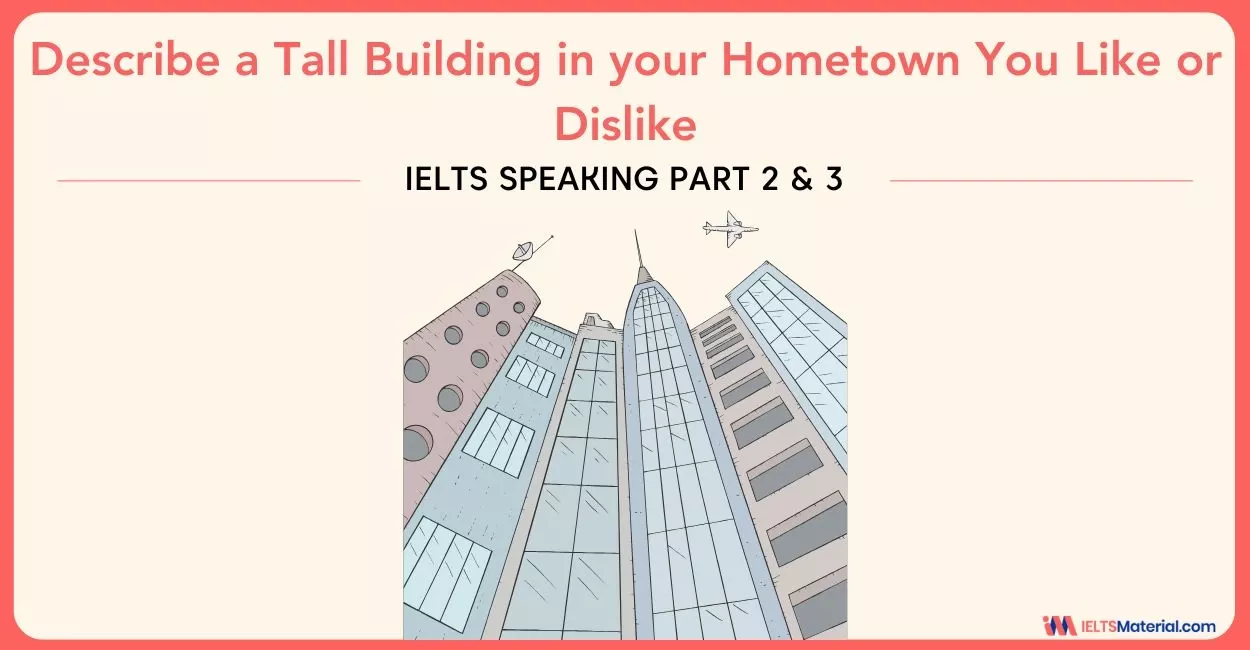
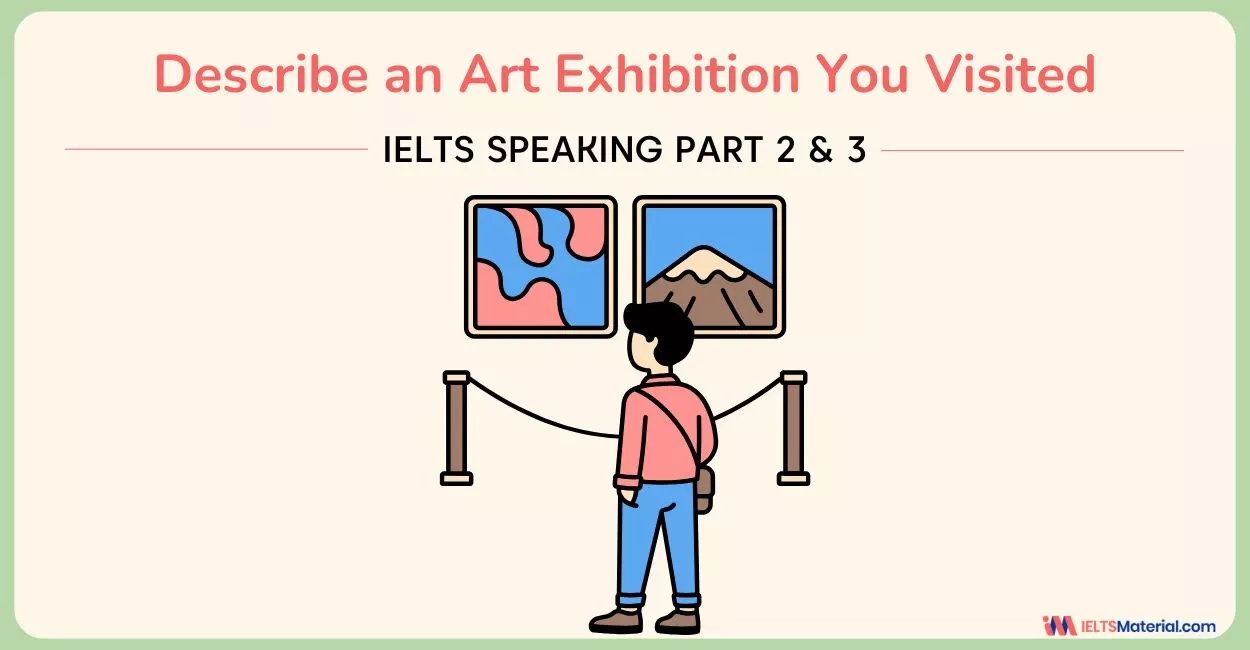
Kasturika Samanta
Recent Articles

Haniya Yashfeen
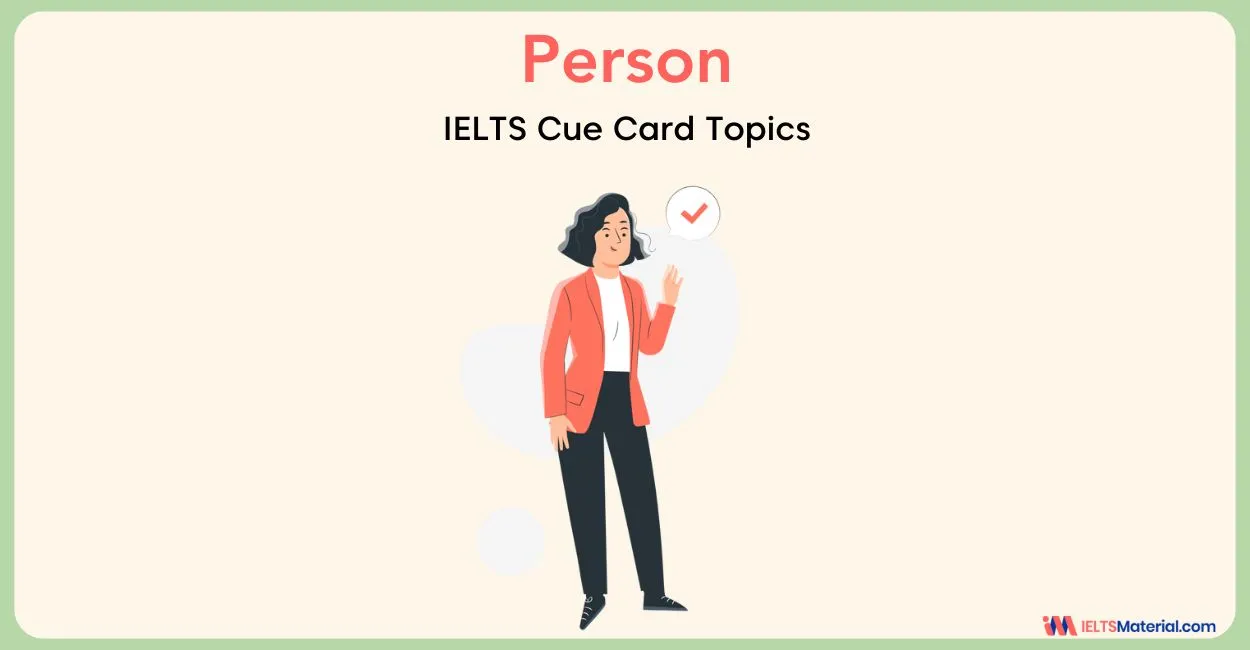
Kasturika Samanta

Nehasri Ravishenbagam
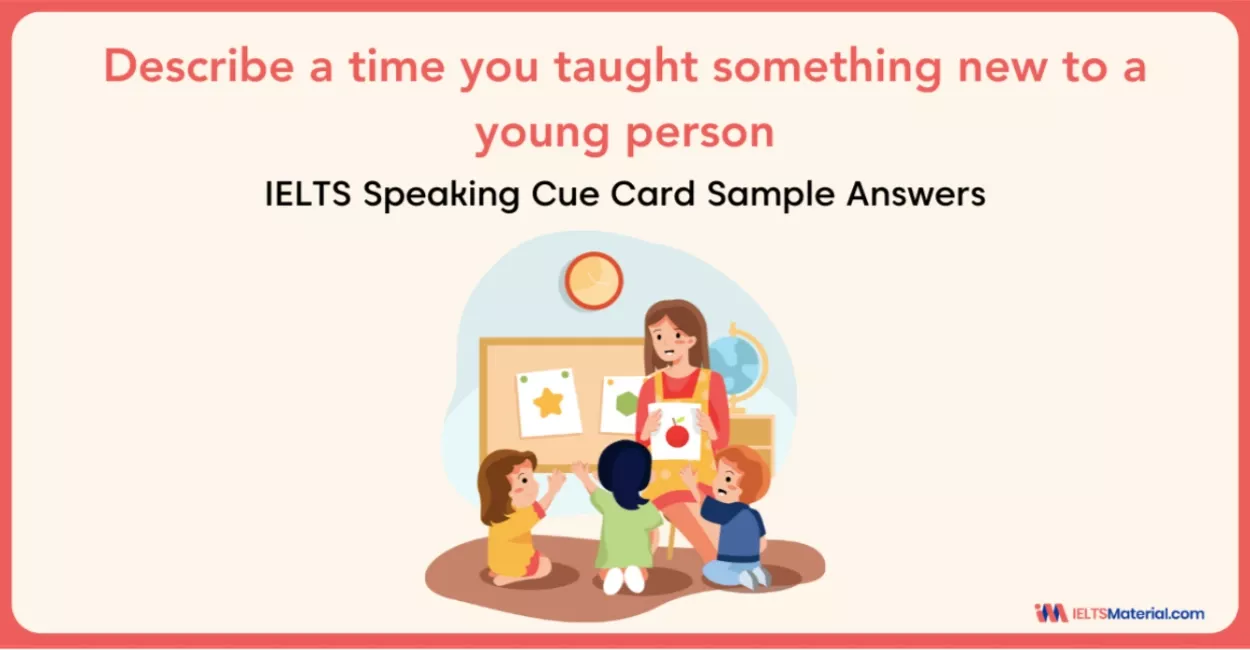



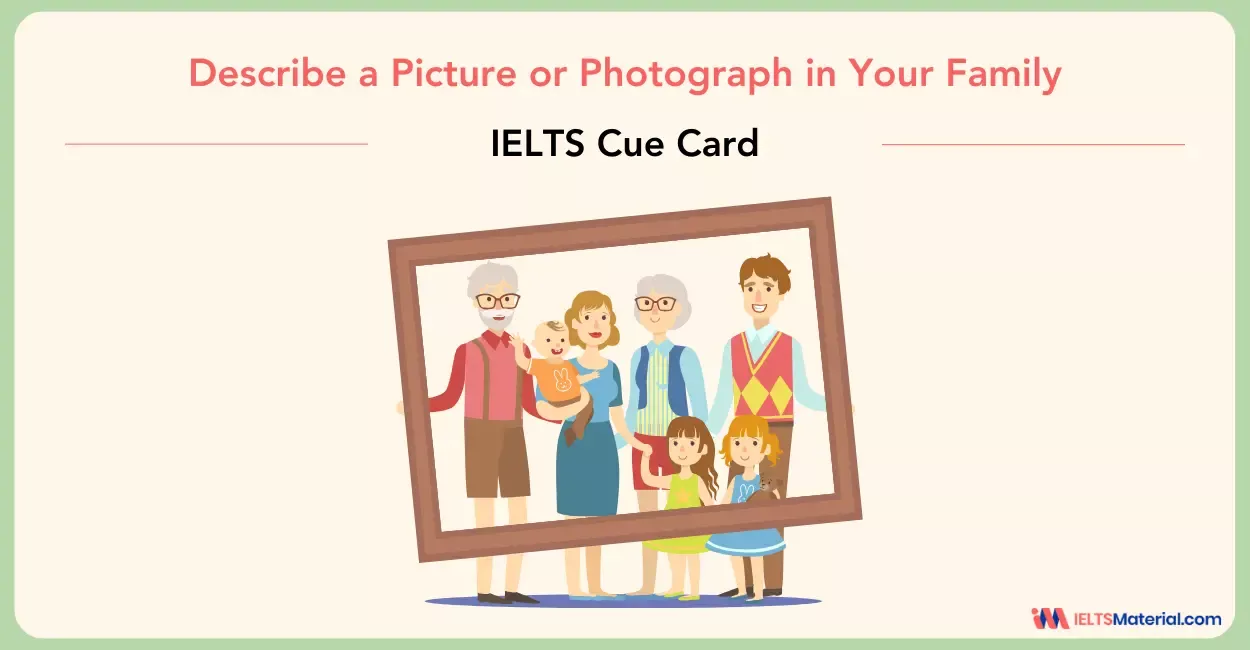


Post your Comments